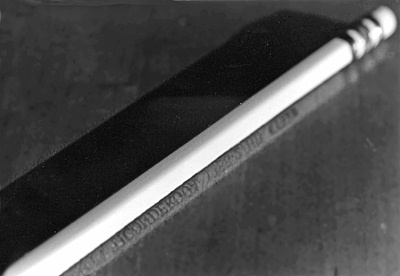All Nonfiction
- Bullying
- Books
- Academic
- Author Interviews
- Celebrity interviews
- College Articles
- College Essays
- Educator of the Year
- Heroes
- Interviews
- Memoir
- Personal Experience
- Sports
- Travel & Culture
All Opinions
- Bullying
- Current Events / Politics
- Discrimination
- Drugs / Alcohol / Smoking
- Entertainment / Celebrities
- Environment
- Love / Relationships
- Movies / Music / TV
- Pop Culture / Trends
- School / College
- Social Issues / Civics
- Spirituality / Religion
- Sports / Hobbies
All Hot Topics
- Bullying
- Community Service
- Environment
- Health
- Letters to the Editor
- Pride & Prejudice
- What Matters
- Back
Summer Guide
- Program Links
- Program Reviews
- Back
College Guide
- College Links
- College Reviews
- College Essays
- College Articles
- Back
An Attack on Plea Bargaining
For every two seconds you spend reading this article, a case is resolved without trial as a result of plea bargaining. In fact, less than 8% of people with criminal charges actually decide to go to trial. On the side of the support of plea bargaining there lies the idea that plea bargaining saves the state and federal governments time and money of trials which is completely contradictory to the spirit of the law. Our criminal justice system is supposed to serve justice and find out who is innocent or guilty. However, the system has become more about winning cases quickly and saving money rather than finding innocence or guilt. Plea bargaining is slowly, but surely, undermining the criminal justice system.
The first point that draws interest is that plea bargaining does not serve justice. Paul Lewis Hayes was indicted for attempting to pass a forged check in the amount of $88.30, an offense that was punishable by a prison term of two to 10 years. The prosecutor offered to recommend a sentence of five years if Hayes would waive his right to trial and plead guilty to the charge. The prosecutor also made it clear to Hayes that if he did not plead guilty and "save the court the inconvenience and necessity of a trial," the state would seek a new indictment from a grand jury. Hayes would face a mandatory sentence of life imprisonment. Despite the enormous pressure exerted upon him by the state, Hayes insisted on his right to jury trial. He was subsequently convicted and then sentenced to life imprisonment. Donald Clarke Baxter pleaded guilty to manslaughter after he killed his friend during a drunken brawl, and walked out of jail after 14 months behind bars. Think about this: because a man refused to waive his rights when pressured, he was given a longer sentence. While a man who killed his friend was allowed to walk out of prison after 14 months as a result of plea bargaining. This could even be linked to the public safety, which the criminal justice system is meant to protect; because it lets criminals out of jail sooner than if they had gone to court.
Also, Plea Bargaining infringes on the rights of the individual
On appeal, Hayes argued that the prosecutor violated the Constitution by threatening to punish him for simply invoking his right to a trial. In response, the government freely admitted that the only reason a new indictment was filed against Hayes was to deter him from exercising that right. Because the indictment was supported by the evidence, the government maintained that the prosecutor had done nothing improper. The case ultimately reached the U.S. Supreme Court for a resolution. In a landmark 5-4 ruling the Court approved the prosecutor's handling of the case and upheld the draconian sentence of life imprisonment. There is no doubt that government officials deliberately use their power to pressure people who have been accused of crime, and who are innocent until proven guilty, to confess their guilt and waive their right to a fair and speedy trial. We know this to be true because prosecutors freely admit that this is what they do. Forcing an accused to choose between immediate freedom in return for a guilty plea or continued incarceration in return for a claim of innocence seems perverse. We claim to value the protection of the innocent ahead of the conviction of the guilty, yet the opposite dynamic appears to be at work in the example quoted above, an example repeated each time the defendant is offered "time served" in return for a plea. The road to freedom is a guilty plea, whereas insisting upon innocence means that incarceration continues.
In conclusion plea bargaining has created a money driven criminal justice system. It creates an instability that allows for coercion and the violation of individual rights. Under the constitution we have the right to not be compelled to waive our rights, yet prosecutors openly admit that they use plea bargaining threats as a form of coercion to avoid trials. Plea bargaining may masquerade as a useful criminal justice tool; however, it in fact weakens our system from the inside. It harms the effectiveness of the system itself, the public safety, and it infringes to an absurd degree to the rights of the accused and tends to harm the innocent. Therefore, I see absolutely no solution other than ridding the criminal justice system of the practice than undermines it from the inside: plea bargaining.

Similar Articles
JOIN THE DISCUSSION
This article has 1 comment.

19 articles 2 photos 9 comments
Favorite Quote:
Keep calm and boba on.